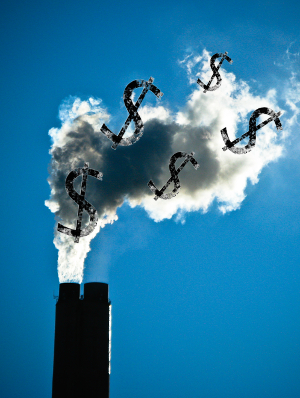Safeguard deal reached
 Labor and the Greens have cut a deal to get a key piece of climate policy through the parliament.
Labor and the Greens have cut a deal to get a key piece of climate policy through the parliament.
After weeks of negotiations, the federal government has secured support from the Greens to pass its key climate policy into law.
Labor's changes to the ‘safeguard mechanism’ are now due to become a reality from July 1, with some key changes secured by the Greens.
Some have described the policy as an example of too little too late, and the concessions made to secure the support of the Greens could be just a drop in the ocean when it comes to avoiding dangerous climate change.
The new legislation, which strengthens the existing ‘safeguard mechanism’ by lowering the baselines for emissions each year, will apply to just 215 facilities, accounting for about 30 per cent of the country's emissions.
The government claims that the safeguard mechanism will lead to a 30 per cent reduction in emissions by 2030, which may not be enough to meet the Paris Agreement targets.
The proposed legislation allows facilities to buy carbon credits or Australian Carbon Credit Units (ACCU) to offset their emissions. The Greens and climate advocates demanded limitations on the use of carbon credits to ensure that facilities are genuinely trying to reduce their emissions. However, these demands were rejected by Labor, which argued that businesses need flexibility in how they reduce their emissions.
The Greens also demanded a hard cap on emissions under the safeguard mechanism, but the legislation does not go far enough.
While there will be a cap set at the five-year rolling average of all emissions produced under the scheme, this will not be enough to prevent the rise in emissions from facilities covered by the mechanism due to the use of carbon credits.
The Greens secured some significant additions to the bills, requiring emissions produced under the mechanism not to exceed a cap set at the five-year rolling average of all emissions produced under the scheme.
While the mechanism will still run as usual, there is a separate rule added to the legislation to ensure the cap is not breached. If it is, the minister will have to intervene and find a way to push emissions down, such as cutting baselines or helping companies invest in cutting their emissions.
The Greens think that the cap may make it challenging for dozens of proposed new and expanded coal and gas projects to be approved. The party has vowed to use the new pollution trigger to challenge future coal and gas projects.
It is a win, though possibly only a meagre one, for the Commonwealth on climate policy has troubled successive federal governments.
Still, many argue that much more needs to be done to ensure Australia is doing its part to avoid dangerous climate change.
Some in the energy industry say they will not be affected by the changes, as they had already factored in the need for direct emissions reductions.








 Print
Print